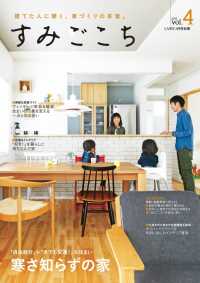- ホーム
- > 洋書
- > 英文書
- > History / World
Full Description
Stories of Jewish Life: Casale Monferrato-Rome-Jerusalem, 1876-1985 is an unconventional memoir-an integrated collection of short stories and personal essays. Author Augusto Segre was a well-known public figure in post-WWII Italy who worked as a journalist, educator, scholar, editor, activist, and rabbi. He begins his book with stories shaped from the oral narratives of his home community as it emerged from the ghetto era, continues with his own experiences under fascism and as a partisan in WWII, and ends with his emigration to Israel. Spanning the years 1876 (one generation after emancipation from the ghetto) to 1985 (one generation after the Shoah), Segre presents this period as an era in which Italian Jewry underwent a long-term internal crisis that challenged its core values and identity. He embeds the major cultural and political trends of the era in small yet telling episodes from the lives of ordinary people.
The first half of the book takes place in Casale Monferrato-a small provincial capital in the Piedmont region in northwest Italy. The second half, continuing in Casale in the late 1920s but eventually shifting to Rome then Jerusalem, follows the experiences of a boy named Moshè (Segre's Jewish name and his stand-in). Moshè relates episodes of Italian Jewry from the 1920s to the 1980s that portray the insidiousness of fascism as well as the contradictions within the Jewish community, especially in its post-ghetto relationship to Italian society. The painful transformation of Italian Jewry manifests itself in universal themes: the seductiveness of modern life, the betrayal of tradition, the attraction of fashionable political movements, the corrosive effects of totalitarianism, and ultimately, on the positive side, national rebirth and renewal in Israel. These themes give the book significance beyond the "small world" from which they arise because they are issues that confront any society, especially those emerging from a traditional way of life and entering the modern world. Students, scholars, and readers of Jewish history, Italian history, and fiction with an autobiographical thread will find themselves captivated by Segre's stories.
-

- 電子書籍
- 呼び覚まされた屈辱【分冊】 7巻 ハー…
-

- 電子書籍
- AKABOSHI―異聞水滸伝― 1 ジ…
-

- 電子書籍
- すみごこち vol.4 - 建てた人に…
-

- 電子書籍
- あやかしこ 1 MFコミックス アライ…




